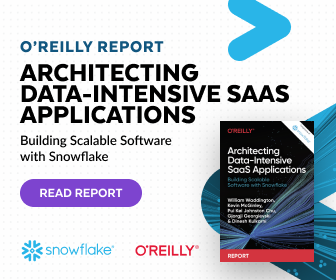Data Architects
Big Data is driving innovation and revolutions across industries. While many companies are collecting data, not all of them are unleashing the potential of it. Generating actionable insights from big data requires an effective process from data organization to storage and analysis.
Many types of data-savvy professionals interact with Big Data sets. Data architects, however, establish the foundation for data engineers and analysts to excel in their spaces.
Data architecture marries technical skills with business management acumen and strategic vision.
DATA ARCHITECTURE JOB DESCRIPTION
A data architecture professional focuses upon collecting information and maintaining proper methodologies for gathering data. He or she also seeks to optimize the way in which organizations analyze information and leverage it. Data architects' skills must allow them to have one eye on big-picture strategy while also focusing on solving sophisticated data-related problems.
Data architecture is to big data as air traffic control is to a busy airport. It establishes information pathways within a company and the way they're managed.
Data architecture touches all data professionals in one way or another. Data architects must define an company's data strategy and vision. In turn, data engineers, data analysts and data scientists operated within the data processing framework.
DATA SCIENTIST VS. DATA ARCHITECT
A data scientist is able to find meaning from data, a process that requires analytical tools and know how as well as computer science and mathematical backgrounds.
On the other hand, a data architect is driven by understanding how data will influence the business. Data architects will also generally have some cross-over knowledge in data science, data warehousing, and data engineering.
Data warehousing architecture will determine the overall processes a company follows in data analysis. It impacts data collection and cleansing, loading, storage and, ultimately, analysis.
BENEFITS OF BEING A DATA ARCHITECT
As already discussed, the responsibilities of a data architect include determining a data strategy, understanding data management technologies, oversee data inventory, and maintain a finger on the pulse of an organization's data management systems.
Data architects come equipped with a wide range of abilities. The overall efficacy of data architectures plays a significant role in corporate success.
It's likely not enough to simply study for data architecture interview questions. Rather preparation for such a role comes through experience.
The national average salary of a data architect exceeds $130,000. Landing such a job generally requires a level of expertise in the data science field.
Data architects play a pivotal role in modern data warehouses. Snowflake's unique built-for-the-cloud architecture enables data scientists to focus on analysis and results.
VIRTUAL HANDS-ON LAB
Understand how Snowflake can advance your enterprise's standing in a data-driven landscape. This hands-on workshop focuses on increasing your efficiency, scaling to your needs and analyzing your data thoroughly. Learn how to set up a data warehouse and generate the insights your business needs.
Find a workshop near you or online.
Learn More:
Five Things A Data Scientist Can Do to Stay Current
